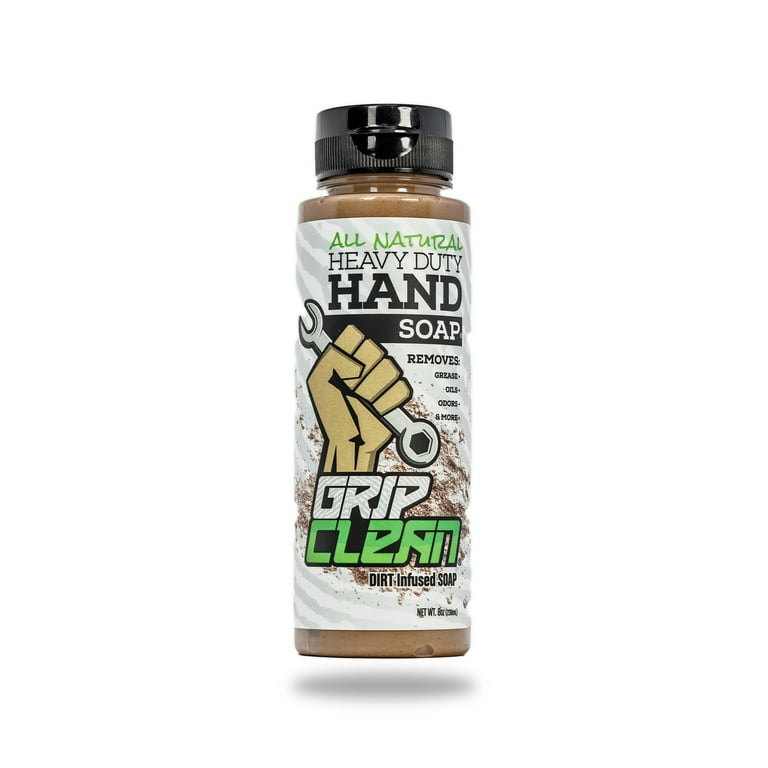To wash mechanic’s clothes, pre-treat heavy stains and use a heavy-duty detergent. Choose a hot water cycle to tackle grease and oil.
Mechanics know that their work clothes become a tapestry of tough stains and stubborn grease. It’s essential to adopt a washing routine that can handle the rigors of oil, lubricants, and various automotive fluids that cling to their fabrics. Getting these garments clean doesn’t just contribute to a professional appearance; it ensures the longevity of the clothing.
A strategic approach to laundering is necessary to cut through the grime without damaging the material. This guide offers practical advice on restoring your mechanic’s attire to a cleaner state, empowering hard-working professionals to look their best and maintain a wardrobe ready for the rigors of their trade. With the right techniques and detergents, those seemingly permanent marks and odors can be a thing of the past.

Credit: www.amazon.com
Tackling Tough Stains
Dealing with oil and grease on mechanic’s clothes requires special attention. Pre-treat these stains as soon as possible. Apply a stain remover directly to the affected area. Allow it to sit for 5-10 minutes before washing. Ensure the product is compatible with the fabric. For embedded dirt, use a soft-bristled brush. Gently scrub the area to loosen the dirt. Don’t use excessive force, as it can damage the material.
Choosing The Right Detergent
Evaluating detergent strength is crucial for removing tough stains from mechanics clothes. Heavy-duty detergents work best to cut through grease and grime.
Environmentally friendly options are also available. These detergents use biodegradable ingredients and are equally effective. Make sure to choose a product with strong cleaning power but gentle on the planet.
The Pre-wash Ritual
Soaking strategies play a key role in tackling mechanics’ clothing stains. Begin by filling a basin with warm water. Next, add a generous scoop of heavy-duty laundry detergent. Ensure you immerse clothes for at least one hour. Doing so loosens grime and oil, making scrubbing easier.
After soaking, scrubbing techniques come into play. Use a stiff-bristled brush to target stubborn stains. Focus on areas most affected like cuffs and collars. Work in a circular motion to lift off dirt. Do this before machine washing for optimal results. Remember to rinse the brush often to avoid spreading the stain.
Machine Washing Tips
Machine washing mechanics clothes requires special attention to detail.
Select the correct temperature for the fabric at hand. Always check the clothing label.
Hot water can remove oil and grease better. But, it can also shrink or damage some fabrics.
Cold water is safer for colors and sensitive materials. Yet, it might not clean as effectively.
The right wash cycle is crucial. A heavy-duty cycle with a pre-soak option can work wonders.
Gentle or permanent press cycles are less effective for heavy stains.
Using the right additives boosts cleaning power. Enzyme detergents can break down tough stains.
Oxygen-based bleaches (non-chlorine) help with color-safe stain removal.
Fabric softeners and dryer sheets should be used sparingly.
Post-wash Care
After washing your mechanic’s clothes, proper drying is key. Hang them outside if the weather is sunny and breezy. This natural method is gentle on fabrics and saves energy. Yet, if outside hanging isn’t an option, using a dryer on a low heat setting works too. Split a large load into smaller ones to ensure even drying.
Storing your mechanic apparel correctly prolongs its life. Clean clothes should go in a cool, dry place. Use hangers for items like overalls to prevent wrinkles and creases. Fold other garments neatly. Ensure your storage area is free from dampness to avoid mildew.

Credit: www.amazon.com
Avoiding Common Mistakes
Properly washing mechanic’s clothes demands attention to the types of fabric. Mixing heavy-duty fabrics with lightweight ones can cause damages and wear. Towels and jeans, for instance, are robust, whereas T-shirts are not. Ensure to separate clothes based on fabric weight for optimal cleaning.
Another crucial aspect is to avoid overloading the washer. This mistake can lead to insufficient cleaning and can strain your washing machine. A packed washer doesn’t provide enough room for movement, crucial for effectively removing grease and dirt. Instead, wash smaller loads to ensure that each garment gets thoroughly cleaned and the washer functions efficiently.
Frequently Asked Questions For How To Wash Mechanics Clothes
How Do You Wash Mechanic Clothes At Home?
Pre-treat stains using a grease-fighting dish soap or stain remover. Wash with warm water on a heavy-duty cycle. Add detergent and a booster like baking soda. Avoid fabric softeners, as they can lock in grease. Air-dry to ensure all stains are gone.
What Laundry Detergent Do Mechanics Use?
Mechanics often use heavy-duty laundry detergents with strong degreasers, such as Persil ProClean or Tide Professional. These detergents effectively remove grease, oil, and automotive fluids.
What Wash Cycle Is Best For Mechanics Clothes?
Use a heavy-duty wash cycle with warm water and a strong detergent for mechanic’s clothes to effectively remove grease and stains.
How Do You Get Mechanics Grease Out Of Clothes?
To remove mechanics grease from clothes, quickly blot the stain with a paper towel. Apply a liquid dish soap directly to the grease and gently scrub with a toothbrush. Rinse with warm water, then launder as usual. Check the stain before drying; repeat if necessary.
learn about Protect Clothes from Silverfish.
Conclusion
Washing mechanics clothes doesn’t have to be daunting. By sticking to the right detergents and techniques, you can effectively remove grease and odors. Remember, pre-treatment is key, and regular maintenance will extend the life of your work attire. Stay clean and professional with these easy steps.
Happy laundering!


